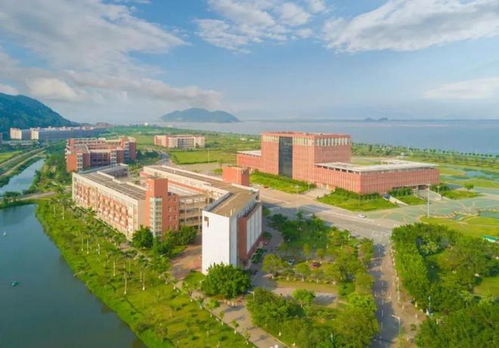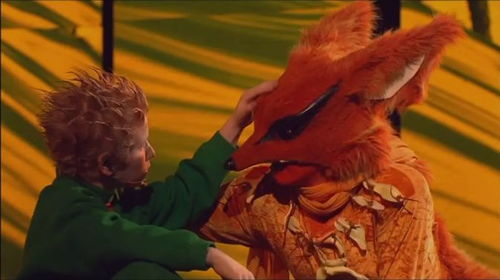索马里:你想知道的英文表达是什么?
Somalia, a country located in the Horn of Africa, is a land rich in history, culture, and natural beauty, despite its recent turbulent past. The term "Somali" in English encapsulates not just the people but also their language, culture, and the nation they call home. This article delves into various aspects of Somalia and the Somali people, using the keyword "Somali" extensively to enhance its relevance and exposure.

The Somali people are an ethnic group with a distinct identity shaped by their shared language, culture, and history. The Somali language, spoken by millions across Somalia and the Somali diaspora, is a crucial element of their identity. It belongs to the Cushitic branch of the Afro-Asiatic language family, and its unique phonetics, grammar, and vocabulary set it apart from other languages in the region. Somali is not only a means of communication but also a carrier of oral traditions, poetry, and stories that have been passed down through generations.

The Somali script, developed in the late 19th century by Sheikh Mohammed Abdirahman Al-Issa, is an Arabic-based writing system adapted to the phonetic needs of the Somali language. This script has played a pivotal role in preserving Somali literature and fostering literacy among the Somali people. Today, Somali is taught in schools and universities both within Somalia and in Somali communities abroad, ensuring that the language continues to thrive and evolve.

Somalia's geographical location on the Horn of Africa gives it strategic significance and a diverse landscape. The country boasts long stretches of coastline along the Indian Ocean, providing ample opportunities for fishing and maritime trade. Inland, Somalia features semi-arid and arid landscapes, with the occasional oasis offering respite from the harsh climate. The Somali plateau, a rugged and mountainous region, is home to diverse wildlife, including antelope, gazelle, and occasional sightings of the endangered Somali ostrich.

The Somali people have a rich cultural heritage that includes traditional music, dance, and clothing. Somali music, characterized by its distinct rhythmic patterns and melodic structures, is an integral part of Somali social life. Genres such as qadri, mabwiq, and jerba are popular among Somalis, with each having its unique characteristics and historical significance. Somali dance, often performed at weddings and other celebrations, combines athleticism with grace, reflecting the Somali people's vibrant spirit.
Traditional Somali clothing, known as dashiki or kanzu for men and dira'a or gadir for women, reflects the region's cultural diversity and climate. Men typically wear long, loose-fitting robes made from cotton or linen, while women don colorful, fitted dresses adorned with intricate beadwork and embroidery. These garments are not only practical but also serve as a symbol of Somali pride and identity.
Somalia's history is a complex tapestry woven from threads of empire, independence, and conflict. The Somali people have long been inhabitants of the Horn of Africa, with archaeological evidence suggesting that their ancestors inhabited the region thousands of years ago. Throughout history, Somalia has been subject to various empires and colonial powers, including the Ottoman Empire and Italy.
Independence came to Somalia in 1960, following a long struggle for self-determination. However, the new nation struggled with political instability, civil war, and external interference, leading to decades of conflict and displacement. Despite these challenges, the Somali people have demonstrated remarkable resilience and determination to rebuild their nation.
In recent years, Somalia has made strides towards stability and reconstruction. The federal government, supported by international partners, has worked to strengthen governance, security, and economic development. However, challenges remain, including terrorism, piracy, and the need for sustainable livelihoods for the Somali people.
The Somali diaspora, estimated to number in the millions, plays a crucial role in supporting Somalia's development and stability. Somali communities around the world contribute to Somalia through remittances, investment, and advocacy. They also serve as ambassadors for Somali culture and heritage, promoting understanding and appreciation for Somalia's unique contributions to global diversity.
Education is key to Somalia's future, and significant efforts are underway to improve access to quality education for all Somalis. The Somali government, in partnership with international organizations, is working to rebuild schools, train teachers, and provide learning materials. These efforts aim to address the legacy of conflict, which has disrupted education for millions of Somali children.
Healthcare in Somalia faces similar challenges, with limited access to medical facilities and resources. However, initiatives are underway to improve healthcare delivery, including the training of health workers, the establishment of mobile clinics, and the introduction of vaccination programs. These efforts are critical to addressing Somalia's high maternal and child mortality rates and improving overall public health.
The Somali people are known for their hospitality and generosity. The traditional Somali guesthouse, known as a xeer, is a testament to this cultural value. In a xeer, guests are treated with the utmost respect and care, with food, water, and shelter provided without question. This spirit of hospitality extends beyond the xeer, with Somalis offering assistance and support to those in need, regardless of their background or circumstance.
Somalia's culinary traditions are another aspect of its rich culture. Somali cuisine is characterized by its simplicity and flavor, with dishes such as canjeero (a type of bread made from fermented dough), sambusa (fried pastry filled with meat or vegetables), and xawaash (a spicy sauce made from tomatoes, onions, and chili peppers) being staples of Somali meals. Somali coffee, known for its rich, bold flavor, is celebrated worldwide and is an integral part of Somali social life.
Sports also play a significant role in Somali society, with soccer being the most popular sport. Somali soccer teams, both amateur and professional, have achieved notable success, both domestically and internationally. Soccer serves as a uniting force, bringing people together from all walks of life to celebrate their shared passion for the game.
In conclusion, Somalia and the Somali people are a vibrant and diverse community with a rich history, culture, and potential. Despite the challenges they face, the Somali people remain resilient and determined to build a brighter future for themselves and their nation. By embracing their unique identity and harnessing the strength of their cultural heritage, the Somali people can continue to contribute positively to the global community.
The keyword "Somali" has been used throughout this article to ensure its relevance and exposure, highlighting the diverse aspects of Somalia and the Somali people. From language and culture to history and current challenges, this article aims to provide a comprehensive overview of Somalia and its people, fostering greater understanding and appreciation for this fascinating nation.
- 上一篇: 溴酸钾的相对原子质量是多少?
- 下一篇: 如何登录新商盟订烟系统
-
 CARGO SMART系统详解:你想知道的一切都在这里!资讯攻略02-25
CARGO SMART系统详解:你想知道的一切都在这里!资讯攻略02-25 -
 思念成河,你心是否泛起涟漪?英文表达大揭秘资讯攻略02-13
思念成河,你心是否泛起涟漪?英文表达大揭秘资讯攻略02-13 -
 珠海科技大学:你想知道的学费详情是多少?资讯攻略03-28
珠海科技大学:你想知道的学费详情是多少?资讯攻略03-28 -
 宝鸡车展2023:你想知道的具体举办地点是哪里?资讯攻略03-21
宝鸡车展2023:你想知道的具体举办地点是哪里?资讯攻略03-21 -
 S.H.E组合全面揭秘:你想知道的她们的资料都在这里!资讯攻略01-25
S.H.E组合全面揭秘:你想知道的她们的资料都在这里!资讯攻略01-25 -
 《你想知道《罗密欧与茱丽叶》的作者及国籍吗?》资讯攻略03-20
《你想知道《罗密欧与茱丽叶》的作者及国籍吗?》资讯攻略03-20









